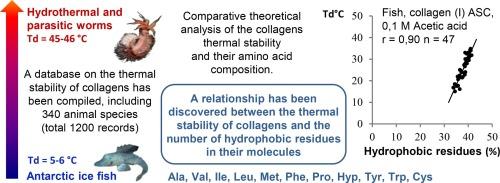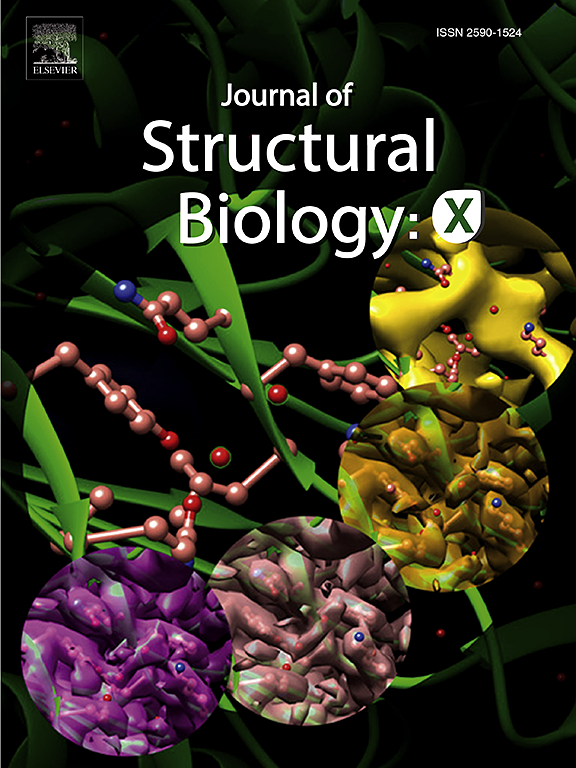胶原蛋白的热稳定性与其分子中疏水残基比例之间的关系。
IF 2.7
3区 生物学
Q3 BIOCHEMISTRY & MOLECULAR BIOLOGY
引用次数: 0
摘要
在这项研究中,我们参考了文献资料,建立了胶原及其合成类似物热稳定性数据库。我们的数据库总共包含 1200 条记录。通过对收集到的实验数据进行比较理论分析,确定了胶原的熔化温度(Tm)或变性温度(Td)与其分子中疏水残基的比例(f)之间的关系。结果表明,这种关系是线性的:f 值越大,特定胶原蛋白的变性或熔化温度就越高。本文章由计算机程序翻译,如有差异,请以英文原文为准。

Relationship between thermal stability of collagens and the fraction of hydrophobic residues in their molecules
In this study, a database of the thermal stability of collagens and their synthetic analogues has been compiled taking into account literature sources. In total, our database includes 1200 records. As a result of a comparative theoretical analysis of the collected experimental data, the relationship between the melting temperature (Tm) or denaturation temperature (Td) of collagens and the fraction of hydrophobic residues (f) in their molecules has been established. It is shown that this relationship is linear: the larger the f value, the higher the denaturation or melting temperature of a given collagen.
求助全文
通过发布文献求助,成功后即可免费获取论文全文。
去求助
来源期刊

Journal of structural biology
生物-生化与分子生物学
CiteScore
6.30
自引率
3.30%
发文量
88
审稿时长
65 days
期刊介绍:
Journal of Structural Biology (JSB) has an open access mirror journal, the Journal of Structural Biology: X (JSBX), sharing the same aims and scope, editorial team, submission system and rigorous peer review. Since both journals share the same editorial system, you may submit your manuscript via either journal homepage. You will be prompted during submission (and revision) to choose in which to publish your article. The editors and reviewers are not aware of the choice you made until the article has been published online. JSB and JSBX publish papers dealing with the structural analysis of living material at every level of organization by all methods that lead to an understanding of biological function in terms of molecular and supermolecular structure.
Techniques covered include:
• Light microscopy including confocal microscopy
• All types of electron microscopy
• X-ray diffraction
• Nuclear magnetic resonance
• Scanning force microscopy, scanning probe microscopy, and tunneling microscopy
• Digital image processing
• Computational insights into structure
 求助内容:
求助内容: 应助结果提醒方式:
应助结果提醒方式:


